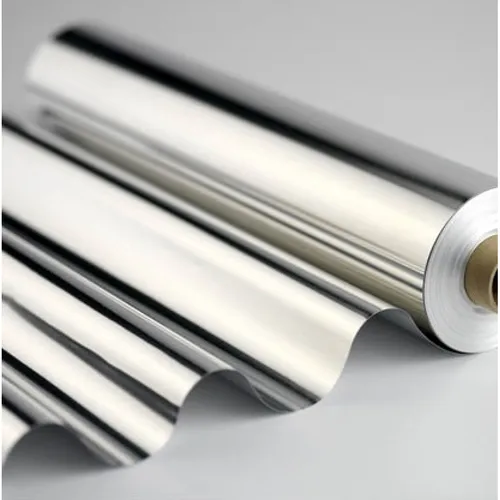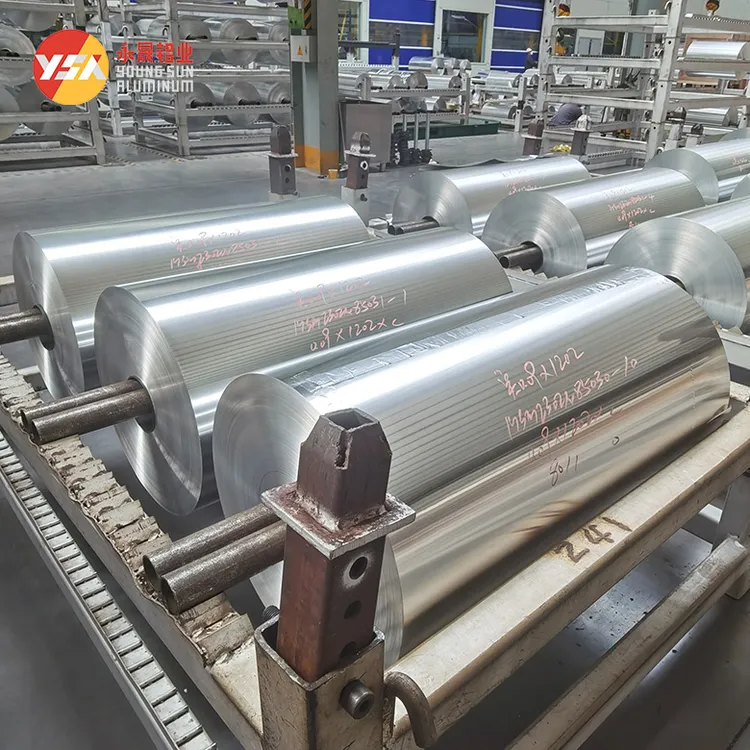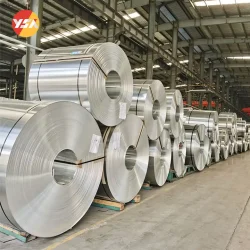How thick is aluminum foil?
Thickness of aluminum foil can vary depending on the intended purpose and specific requirements. In this article, we will answer a frequently asked question: How thick is aluminum foil? We will explore different thickness ranges, including “double zero foil” (0.006 mm to 0.009 mm) and “single zero foil” (0.01 mm to 0.1 mm), providing insights into their uses and characteristics.
Thickness of aluminum foil-double zero foil
Double zero foil refers to a specific thickness range of aluminum foil. It is characterized by its delicate and thin nature, making it suitable for specialized applications. Double zero foil typically has a thickness range of 0.006 mm to 0.009 mm. The term “double zero” signifies the presence of two zeroes in the measurement, highlighting its extremely thin composition.
This type of foil is commonly used for tasks that require a lightweight and delicate wrapping material. It finds applications in areas such as pharmaceutical packaging, battery manufacturing and specialized wrapping tasks.
Thickness of aluminum foil-single zero foil
Single zero foil represents another category of aluminum foil thickness. Unlike double zero foil, single zero foil is relatively thicker and offers increased strength and durability. It typically has a thickness range of 0.01 mm to 0.1 mm. The term “single zero” indicates the presence of a single zero in the measurement, distinguishing it from the thinner double zero foil.
Single zero foil is frequently employed in general packaging, insulation, and industrial applications where a sturdier material is required. Its strength makes it suitable for various uses, including wrapping heavier food items and insulation purposes.

Aluminum Foil Thickness
Thickness of aluminum foil is often measured in microns (µm), where 1 micron is equal to 0.001 millimeters or 0.000039 inches. The range of aluminum foil thickness can vary widely, from extra-thin to heavy-duty options.
Household Foil: Household aluminum foil, commonly used for wrapping food and covering dishes, is typically thin and ranges from 10 to 18 microns (0.4 to 0.7 mils) in thickness. This type of foil is pliable and easy to tear.
Standard Foil: Standard thickness of aluminum foil, used for various cooking and baking applications, is typically around 25 microns (1 mil) thick. It provides moderate strength and heat insulation.
Heavy-Duty Foil: Heavy-duty aluminum foil is thicker and more robust, typically ranging from 30 to 50 microns (1.2 to 2 mils) in thickness. It offers increased durability and resistance to high temperatures, making it suitable for grilling, roasting, and wrapping heavy foods.
Extra Heavy-Duty Foil: For even greater strength and durability, extra heavy-duty aluminum foil is available. It can range from 50 to 100 microns (2 to 4 mils) in thickness, providing excellent heat resistance and puncture resistance. This type of foil is often used in professional kitchens and industrial settings.
Specialty Foils: In addition to standard and heavy-duty foil, there are specialty foils available with specific thicknesses for specialized applications. For example, ultra-thin foils can be as thin as 6 microns (0.24 mils) and are often used in electronics, medical applications, and aerospace industries. Thicker foils, such as those used for insulation, can range from 60 to 90 microns (2.4 to 3.5 mils) or more.

Yongsheng Aluminum Foil
Yongsheng Aluminum Industry is a company specialized in the production and sale of aluminum foil, with 25 years of experience. We are committed to providing high-quality aluminum foil products and offering excellent service to our customers.
As a professional aluminum foil manufacturer, Yongsheng Aluminum Industry emphasizes product quality and technological innovation. We utilize advanced production equipment and processes to ensure that our aluminum foil products have excellent performance and reliable quality. Our products are widely used in various industries, including food packaging, pharmaceutical packaging, electronics, and construction materials.
Customer satisfaction is our top priority, and we uphold the principles of integrity and quality service. Our sales team is ready to answer your inquiries and provide technical support. Whether you need a large quantity purchase or small batch customization, we welcome your purchase and collaboration.


